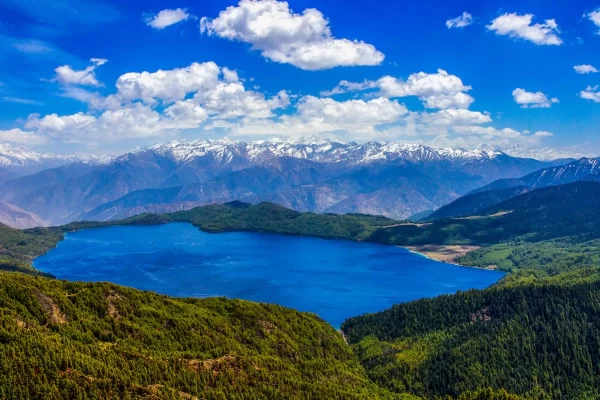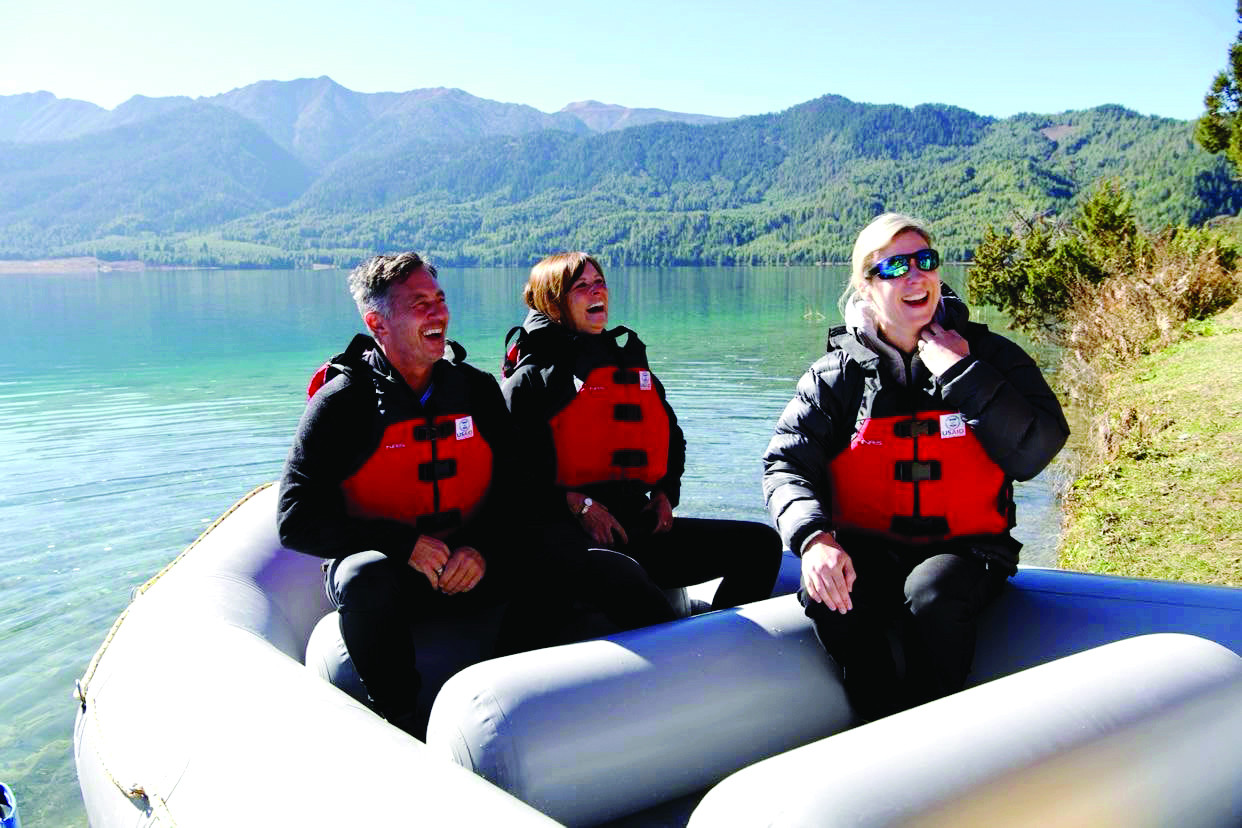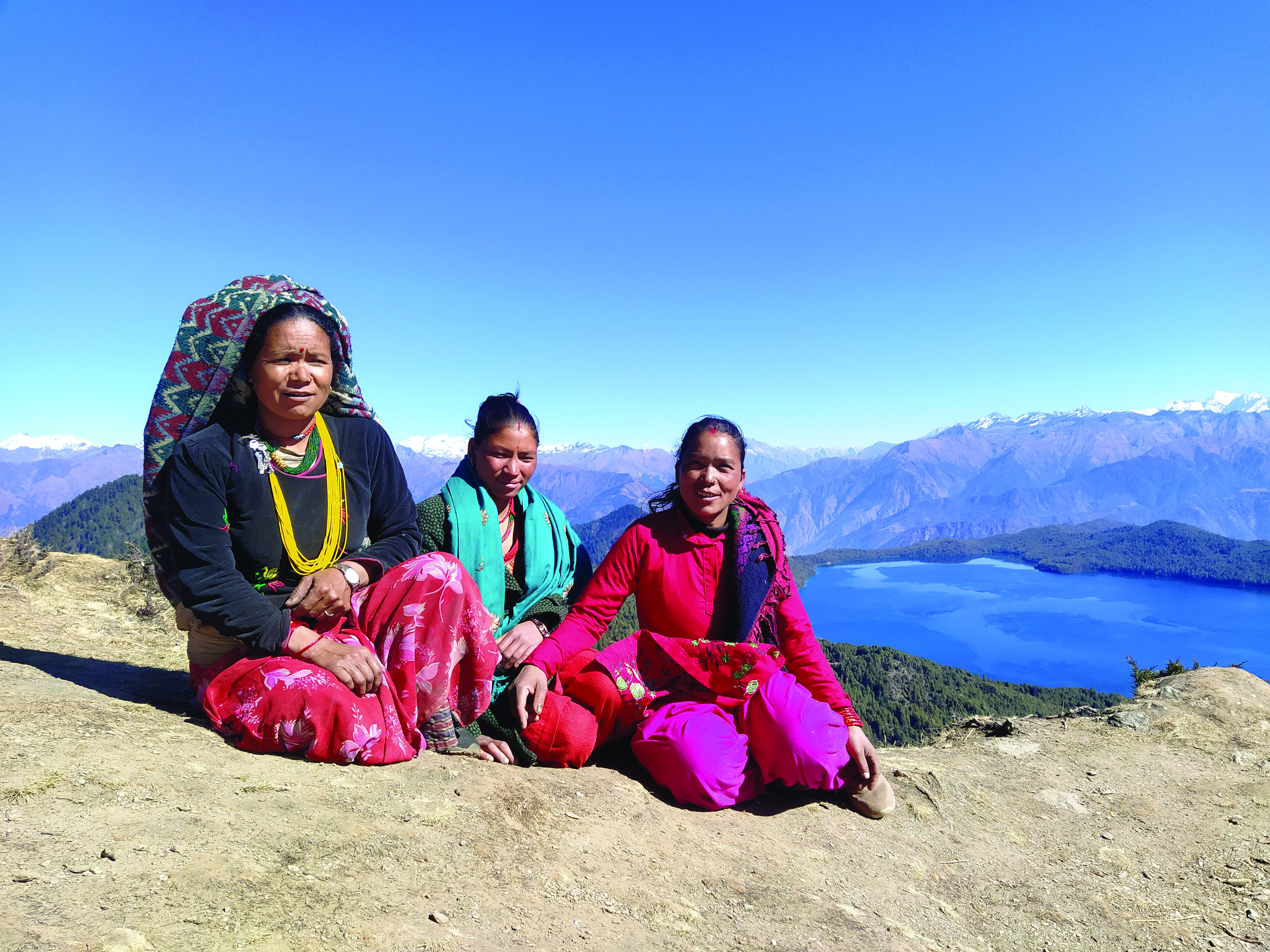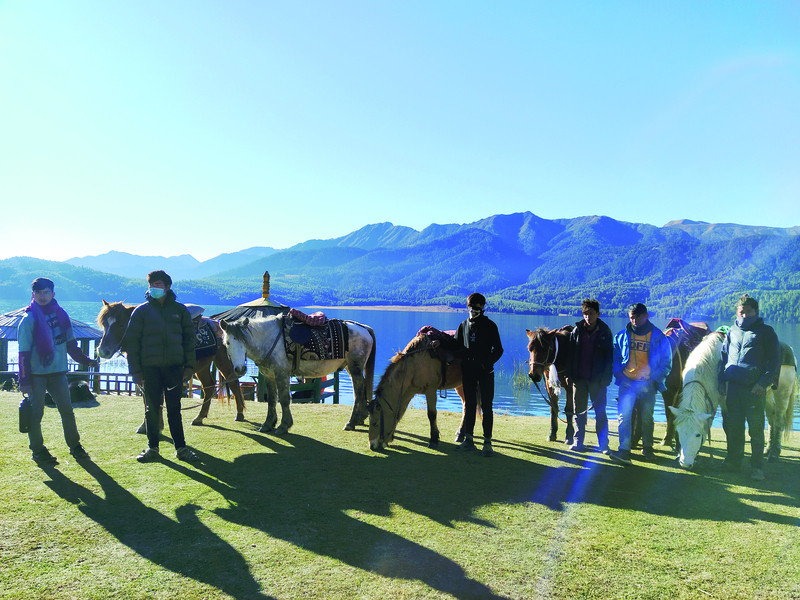
“It’ s really amazing ! “ said Randy Berry, US Ambassador and shared his cheerfulness on seeing Rara’s full contour from Murma’s top. Not only Berry, everyone who reaches Rara gets excited and says, “Wow, Rara.” That is why Rara is known as the ‘ Paradise’s Angel’.
 Rara is the largest mountainous lake in Nepal. It is 2,990 meters above sea level. It has an area of 10.8 square kilometers, a length of 5.1 kilometers, a width of three kilometers and a depth of 167 meters. Encircled by lush green forests and hills, Rara Lake is considered as a beautiful gift of nature. Rara National Park where the lake situated is home to wild animals such as Red panda, musk deer, deer, bear including Danphe, Nepal’s national bird and several other birds. Rara National Park covers an area of 106 square kilometers.
Rara is the largest mountainous lake in Nepal. It is 2,990 meters above sea level. It has an area of 10.8 square kilometers, a length of 5.1 kilometers, a width of three kilometers and a depth of 167 meters. Encircled by lush green forests and hills, Rara Lake is considered as a beautiful gift of nature. Rara National Park where the lake situated is home to wild animals such as Red panda, musk deer, deer, bear including Danphe, Nepal’s national bird and several other birds. Rara National Park covers an area of 106 square kilometers.
The lake is reached in four-hour hike from Gamgadhi , the district headquarters to the west. Horseback riding is an alternative option. The envious lake eliminates the fatigue of walking. During the flowering season, the forest around the lake is enclosed with full of colorful flowers. That’s why people who visit here might have termed Rara as fairy of Paradise. Rara is also home to a numbers of endangered local species.
 Murma top can be reached in 3-hour hike from the lake. The hilltop is about 3700 meters above sea level. One can overview the breathtaking view of Rara lake as well as Saipal Himal, Sisne Himal, Kanjirowa and other mountain ranges. The weather is very cold all year round. The best season to visit the lake is from March to April and Sept to Nov.
Murma top can be reached in 3-hour hike from the lake. The hilltop is about 3700 meters above sea level. One can overview the breathtaking view of Rara lake as well as Saipal Himal, Sisne Himal, Kanjirowa and other mountain ranges. The weather is very cold all year round. The best season to visit the lake is from March to April and Sept to Nov.
Also see: Sacred Mountains of Nepal: Pilgrimage Sites and Its Significance
On a recent private visit (November 14 to 17) US Ambassador to Nepal Randy Berry, Australian Ambassador Felicity Volk and British Ambassador Nicola Pollitt has set their foot on Rara Lake. It was the first foreign diplomats’ visit to Rara after the Covid pandemic.
Raju Karki, a tourism entrepreneur, said that the trip of the ambassadors would help in promotion of tourism sector on the whole. The joint visit of the US, Australian and British Ambassadors was pleasant and informative to revive Nepali tourism, plagued by the Corona pandemic for a long time. As a message of safe visit to Rara, they had posted #LetsGoRara on social media.
The joint visit of diplomats was made to Rara and surrounding villages with the aim of raising public awareness about climate change and its imme diate impact on the people of the Himalayan region and environment. They had pledged not to use disposable plastics, to reduce waste, and to eat only vegetarian food throughout Rara’s journey.
diate impact on the people of the Himalayan region and environment. They had pledged not to use disposable plastics, to reduce waste, and to eat only vegetarian food throughout Rara’s journey.
“We all live together in this house called Earth, and this house is wonderful and spectacular, so our efforts have to be on both levels, as individuals in our daily lives and as a country in the world,” said US Ambassador Berry. Plastic bottles will not be used, I believe we will do our best to reduce the global impact on climate change.
RANDY BERRY - US Ambassador to Nepal
A part from my own country, Nepal is the place where I spend most of my time. The landscapes here are unparalleled in the world. Also, the diversity of language, culture and life of the people is remarkable. Rara Lake is one of the most beautiful places in the world in terms of scenery, public life, and beauty. Yet it reminds me of places around the world - places that are facing the challenge of climate change and finding solutions. Friends who have come with me and I are committed to using only disposable plastics, reducing waste and eating only vegetarian food. I would like to thank my friends for accompanying me on the journey. Now it’s time to start working.

FELICITY VOLK - Australian Ambassador
I consider myself lucky to have been able to stay in Rara for four days and have fun. I am fortunate to have a joint conversation with US Ambassador Berry and British Ambassador Polite on climate change issues, both of whom have a deep love for Nepal. Especially on this trip I met with the local communities of Mugu and Rara who were trying to adapt themselves to climate change and listen their invaluable experiences about the complex challenges facing with their lifestyles. For example, wildlife conservation issues in national parks coincide with crop destruction. Encouragement plans to promote tourism poses a risk of environmental degradation. Tourists have not followed the policy of waste management properly. It is clear that while the effects of climate change are not easy to resolve, we must not stop trying to find solutions.
 NICOLA POLLITT - British Ambassador
NICOLA POLLITT - British Ambassador
Our interaction with the local community and leaders in Mugu was very helpful. Especially women who are closely connected with nature at their work. There are many challenges associated with climate change. Some farmers have even decided to give up farming because it is becoming very risky. We will help communities to adapt who are at risk due to the climate change. The 15 km trek around the lake is very exhilarating. Rafting around the lake and horseback riding are additional activities available to the tourists.




